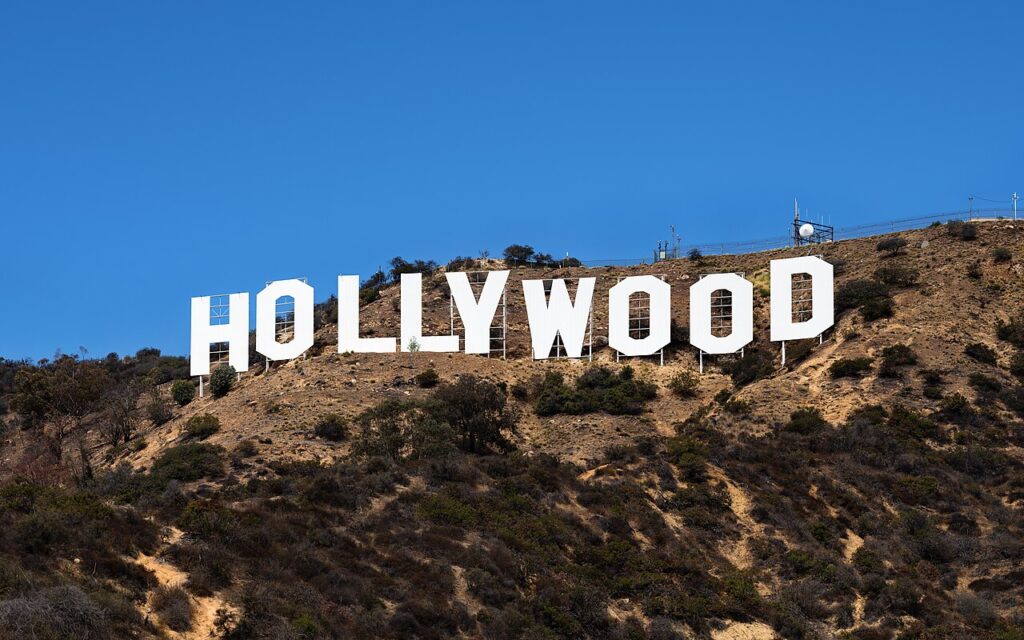Trump’s Threat of Tariffs on Foreign Films Rattles Studios Based in High-Tax Hollywood
Those who work making movie magic wouldn’t need White House intervention if more of them voted for business-friendly policies.

Saying Hollywood is “dying,” President Trump is considering a 100 percent tariff on films produced overseas. The entertainment business now faces a reckoning for supporting high taxes and onerous regulations at home while relying on foreign tax breaks to spare them the consequences.
“The Movie Industry in America is DYING a very fast death,” Mr. Trump wrote Sunday on his Truth Social platform. He described a “concerted effort” to influence America through entertainment, saying it constitutes “a national security threat” via “messaging and propaganda.”
One example is Communist China’s role in 2010’s “The Karate Kid.” China Film fronted Sony $5 million, buying, the Los Angeles Times reported, “veto power over … the film’s portrayal of the country.” The result was a “propaganda tool” and a “largely sanitized version” of Beijing’s dictatorship.
In the 1930s, Hollywood’s desire to keep Nazi Reichsmarks flowing made studios reject “The Great Dictator,” Charlie Chaplin’s satire of the man that he said “stole my mustache,” Adolf Hitler. Germany’s invasion of Poland resulted in a swift about-face.

On Monday, a White House spokesman, Kush Desai, said that “while no final decisions on foreign film tariffs” had been made, they’re “exploring all options to … safeguard our country’s national and economic security” as other nations do.
Canada’s “cultural protectionism” through Canadian content laws mandates that large percentages of radio and television broadcasts are locally produced, freezing out Americans. Filmmakers may like to pass off Toronto or Vancouver, Canada, as Manhattan, but tariffs could make it unprofitable.
Speaking to Westworld in 2013, a North Hollywood native and podcaster, Adam Carolla, described the lure of crossing the 49th Parallel. He recalled being told at a Winnipeg, Canada, hotel that a Beverly Hills-based actor and “fan of Obama,” Samuel L Jackson, was staying in the neighboring suite.
Mr. Jackson wasn’t there, Mr. Carolla reckoned, “portraying … a Mountie-on-the-edge.” He was portraying “a cop from Chicago” at frigid Winnipeg — nicknamed “Winterpeg” — to avoid taxes, because Hollywood’s “principles aren’t often in line with the things that come out of their mouths.”
Many movies and TV shows are filmed in states with more competitive business climates. Some offer tax breaks like foreign countries, helping to keep production domestic. Expect their facilities to boom if Mr. Trump makes good on his tariffs.
The phenomenon of “runaway production” has cost California — and America — more jobs and tax revenue each year. The 2024 Los Angeles Film Production Report found that shooting days in the city had fallen 38 percent since 2017.
TV production in Los Angeles has dropped 58.4 percent since 2021, according to FilmLA, a nonprofit that promotes shooting on location in the area. Actors, producers, and executives may hang their hats in Tinseltown. They just can’t afford to work there.
On “Literally! with Rob Lowe” last month, Mr. Lowe explained why he hosts his game show, “The Floor,” at Dublin. “It’s cheaper,” he said, “to bring a hundred American people to Ireland than to walk across the lot at Fox, past the soundstages, and do it there.”
A fellow actor, Adam Scott, told Mr. Lowe that he’s scheduled to spend “months” in Ireland for a film. “It’s so weird,” he said, “that nothing shoots in Los Angeles. … It’s just too expensive.” Both men agreed that their show, “Parks and Recreation,” would today be based at Budapest.
Other countries, Mr. Lowe said, “are offering 40 percent” tax credits; Los Angeles offers none. “And then,” he added, “that’s not even talking about the union stuff.” He called it “criminal what California and LA have let happen.” Mr. Trump aims to flip the script.
“We’re going to meet with the industry,” Mr. Trump said at the Oval Office on Monday. “I want to make sure they’re happy about it.” Filmmakers are sure to balk at forgoing overseas tax shelters and having to work under the economic climate most favor at the ballot box.
Those who work making movie magic wouldn’t need White House intervention if more of them voted for business-friendly policies. Instead, they’ve priced themselves out of Los Angeles and shifted production elsewhere — often to foreign countries that don’t share the president’s goal to “make Hollywood great again.”

